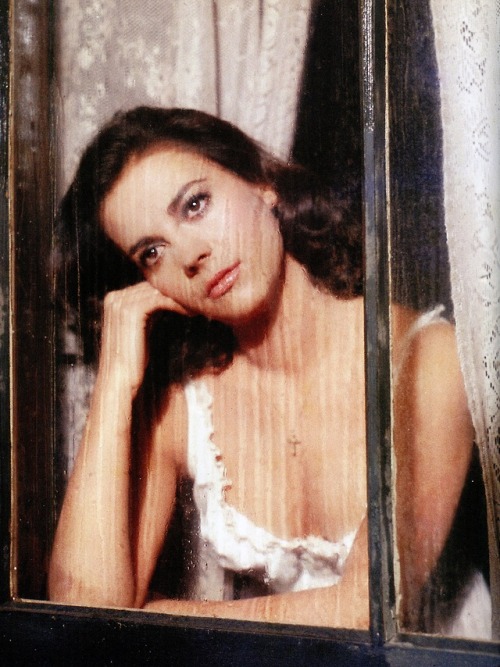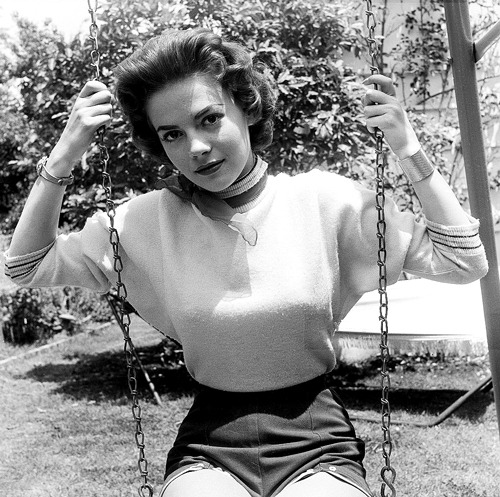Natalie Wood At A Party Thrown By Songwriter Jimmy McHughes, 1958.

Natalie Wood at a party thrown by songwriter Jimmy McHughes, 1958.
More Posts from Natashawood and Others




During my Ophelia stage, I began to watch films starring Natalie Wood that were shot in the 1960s. There was something about her wide eyes and fragility that reminded me of these drowning women, the fair Ophelia. In Splendor in the Grass, Natalie’s character Deanie loses her mind and self-destructs in more and more glamorous ways, eventually wading into a pond decked out in a gorgeous flapper dress for her suicide attempt. Deanie is saved, goes to therapy, and gets set to marry a nice doctor. But I didn’t care about that. I cared about the frantic way she slid into the water, the way she picked her footing as she climbed down. In her beauty and self-destruction, she wielded an ugly power. Why were these fictional beautiful women always losing their minds so extravagantly? Why are they so compelling? I’ve always found wilting orchids more compelling [than girl bosses] - women who burn bright and burn out, undermined by their own desire for love or wholeness or whatever it is that pushes them under water. Some of us choose the self-destructive model and discover power in the tatters. - Patricia Grisafi; Why Are We So intrigued by Beautiful Drowning Women? A Look at Natalie Wood’s Hysterical Glamour



“When Warren Beatty came to the set, “she’d sit on his lap and she’d whisper in his ear and he would reassure her… She just had this power over him. He adored her.”






Dominick, I really owe you an apology, you know? I really do. All this time, I’ve been blaming you for everything. You ruining my life and all that. Well, that’s over now. You know why I’ve never been able to leave home? I just suddenly figured it out. Very complicated. I was scared. And I’m not scared anymore. I’m terrified. Funny?
NATALIE WOOD as Angie Rossini in Love with the Perfect Stranger (1963) dir. Robert Mulligan
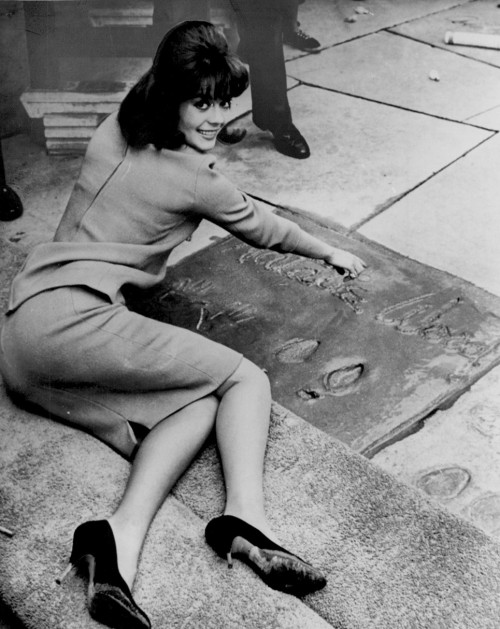
Natalie Wood at her Grauman’s Chinese Theatre imprint ceremony, 1961.

Natalie Wood, James Dean, and Nick Adams review their notes behind the scenes of “Rebel Without a Cause,” 1955.
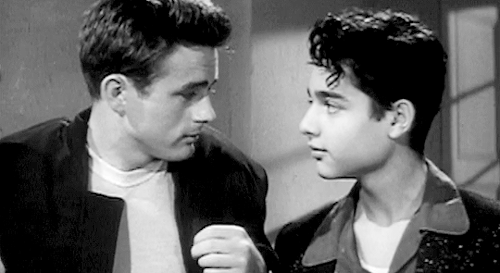
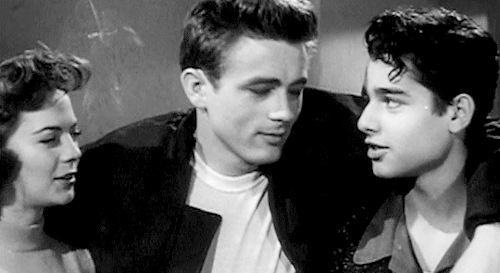
Rebel Without a Cause (1955) Screen Test
-
 sqrlgrrl2 liked this · 6 months ago
sqrlgrrl2 liked this · 6 months ago -
 georges95 liked this · 6 months ago
georges95 liked this · 6 months ago -
 lowersideband liked this · 6 months ago
lowersideband liked this · 6 months ago -
 creepingirrelevance reblogged this · 6 months ago
creepingirrelevance reblogged this · 6 months ago -
 capitankree liked this · 6 months ago
capitankree liked this · 6 months ago -
 jackwiant liked this · 6 months ago
jackwiant liked this · 6 months ago -
 hillbillyholly reblogged this · 6 months ago
hillbillyholly reblogged this · 6 months ago -
 hillbillyholly liked this · 6 months ago
hillbillyholly liked this · 6 months ago -
 aminos5 liked this · 1 year ago
aminos5 liked this · 1 year ago -
 craigswanson liked this · 2 years ago
craigswanson liked this · 2 years ago -
 realjoyliz reblogged this · 2 years ago
realjoyliz reblogged this · 2 years ago -
 rhera liked this · 3 years ago
rhera liked this · 3 years ago -
 wejerges liked this · 3 years ago
wejerges liked this · 3 years ago -
 daughtersofhorror liked this · 3 years ago
daughtersofhorror liked this · 3 years ago -
 1335sj liked this · 3 years ago
1335sj liked this · 3 years ago -
 natashawood liked this · 3 years ago
natashawood liked this · 3 years ago -
 itbe1964 reblogged this · 3 years ago
itbe1964 reblogged this · 3 years ago -
 rei-gomes liked this · 3 years ago
rei-gomes liked this · 3 years ago -
 wild1bill1953 liked this · 3 years ago
wild1bill1953 liked this · 3 years ago -
 wild1bill1953 reblogged this · 3 years ago
wild1bill1953 reblogged this · 3 years ago -
 natashawood reblogged this · 3 years ago
natashawood reblogged this · 3 years ago -
 maia-radfemdu liked this · 3 years ago
maia-radfemdu liked this · 3 years ago -
 kelevra6969 liked this · 3 years ago
kelevra6969 liked this · 3 years ago -
 classictv1 reblogged this · 3 years ago
classictv1 reblogged this · 3 years ago -
 classictv1 liked this · 3 years ago
classictv1 liked this · 3 years ago -
 madame-est-morte reblogged this · 3 years ago
madame-est-morte reblogged this · 3 years ago -
 cozy-bois reblogged this · 3 years ago
cozy-bois reblogged this · 3 years ago -
 cozy-bois liked this · 3 years ago
cozy-bois liked this · 3 years ago -
 themangledhawk reblogged this · 3 years ago
themangledhawk reblogged this · 3 years ago -
 fwebb liked this · 3 years ago
fwebb liked this · 3 years ago -
 scuttle-buttle liked this · 3 years ago
scuttle-buttle liked this · 3 years ago -
 thefalconrises reblogged this · 3 years ago
thefalconrises reblogged this · 3 years ago -
 lettertofather liked this · 3 years ago
lettertofather liked this · 3 years ago -
 itwasyummy liked this · 3 years ago
itwasyummy liked this · 3 years ago -
 thefalconrises liked this · 3 years ago
thefalconrises liked this · 3 years ago -
 loremerchant reblogged this · 3 years ago
loremerchant reblogged this · 3 years ago -
 loremerchant liked this · 3 years ago
loremerchant liked this · 3 years ago -
 idkmils reblogged this · 3 years ago
idkmils reblogged this · 3 years ago -
 claraameliapond liked this · 3 years ago
claraameliapond liked this · 3 years ago -
 gregg-araki reblogged this · 3 years ago
gregg-araki reblogged this · 3 years ago -
 sothischickshe liked this · 3 years ago
sothischickshe liked this · 3 years ago -
 prideandprejudice reblogged this · 3 years ago
prideandprejudice reblogged this · 3 years ago



